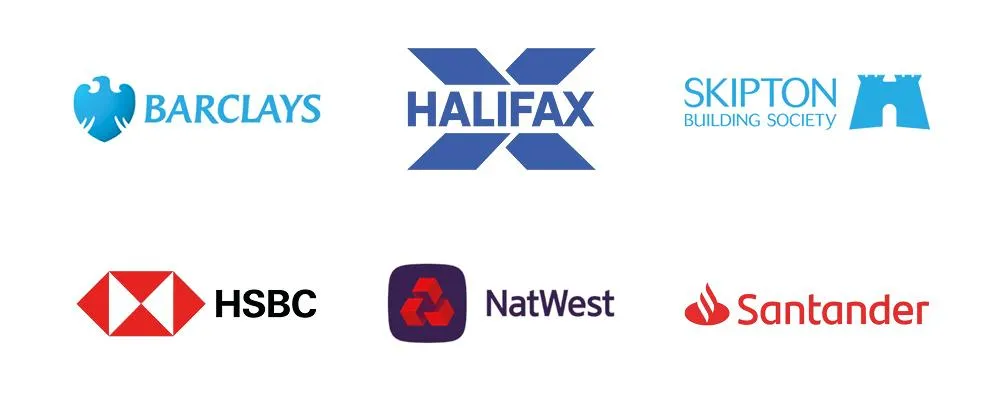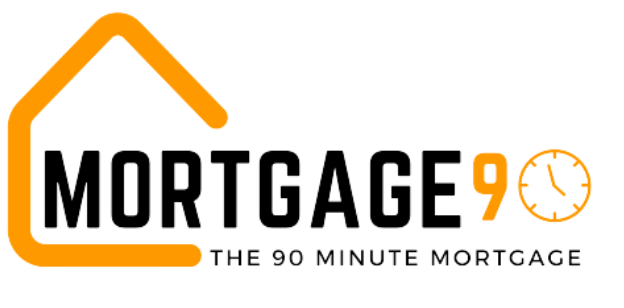Mortgages With Mortgage90
Calculate your affordability here
Mortgage 90
Mortgages are our thing.
With access to over 90 lenders, we're likely to have a product right for you, whether you're looking to buy your first house, remortgage, or anything in between.
Mortgage Affordability Calculator
The affordability calculator is only a guide. Other factors like your Credit Score will have an impact on your overall affordability. However, to find you the best rate possible this is a great place to start.
Why not take the next step and let us get you the mortgage you need today?

We filter through a huge range of over 10,000 products from over 90 high street and specialist lenders, to find you the best rate possible to suit your needs.

We can't tell you what interest rate to use be but make an appointment and we could get you a decision in principle in as little as 90 minutes. This will be accurate and show real time figures. Book now and get the answers!
The different mortgage types
When choosing a mortgage, it's important to compare your options and find the one that best suits your needs and budget.
You'll want to consider factors such as interest rates, the length of the mortgage term and any associated fees or charges.
It's vital to remember that your home may be repossessed if you do not keep up with your mortgage repayments.
Fixed-Rate Mortgages
Fixed-rate mortgages are the most secure kind of product to protect yourself against fluctuation of interest rates as they stay the same for a set period of time. Periods are typically between 2-10 years, the choice is yours. During the fixed period, your monthly payments will stay the same and will not be affected by interest rate variations determined by the Bank of England. Once the fixed rate term has ended, you will move onto the lenders standard variable rate (SVR) and the interest rates are usually significantly higher which means higher monthly payments. This would be a good time to look at remortgaging to another fixed rate.
Benefits of Fixed Rate Mortgages:
Rate Stability: One of the primary benefits of a fixed-rate mortgage in the UK is the stability it offers. The interest rate remains constant for an agreed-upon term, providing borrowers with predictable monthly payments. Fixed-rate mortgages shield borrowers from fluctuations in the Bank of England base rate. This protection can be crucial in times of economic uncertainty, preventing sudden increases in mortgage payments.
Budgeting Certainty: Fixed monthly payments make budgeting more straightforward, especially for those who prefer financial predictability. This can be particularly beneficial for first-time buyers or those on a fixed income.
Early Repayment Charges (ERCs): If you choose to leave a fixed-rate mortgage before the agreed-upon term, you may incur Early Repayment Charges. These charges are designed to compensate the lender for the interest income they expected to earn over the fixed period.
Monthly Payments: Borrowers make regular monthly payments throughout the fixed period. The amount is determined by the loan amount, the fixed interest rate, and the term of the mortgage. Monthly payments typically cover both the capital amount borrowed and the interest charged on that amount. In the early years, a larger portion of the payment goes towards interest, with more applied to the capital over time.
Before committing to a fixed-rate mortgage in the UK, it's crucial to carefully review the terms, including the fixed period, interest rate, and any associated penalties for early repayment. While fixed-rate mortgages provide stability, the penalties for leaving early can be significant, so it's essential to weigh the benefits against your long-term plans and financial flexibility.
Standard Variable Rate (SVR) Mortgages
This is the default rate that borrowers move onto after their fixed or tracker rate period has ended. The interest rate on an SVR mortgage is variable, meaning it can change at the discretion of the lender, usually a specified percentage above the Bank Of England Base Rate. Unlike fixed-rate mortgages, where the interest rate is set for a specific term, SVR mortgages are influenced by market conditions and the lender's policies and do not have a specified fixed rate period.
Flexibility: SVR mortgages offer flexibility, allowing borrowers to make overpayments, underpayments, or pay off the mortgage early without facing the same level of penalties as fixed-rate mortgages.
No Early Repayment Charges: Unlike fixed-rate mortgages, SVR mortgages typically do not carry early repayment charges. This can be advantageous for borrowers who anticipate changes in their financial circumstances. Borrowers on an SVR can often switch to a fixed-rate mortgage or another type of mortgage without incurring significant penalties. This flexibility can be valuable in a changing interest rate environment.
Interest Rate Fluctuations: The main drawback of SVR mortgages is that the interest rate is subject to change. Borrowers may experience increases in monthly payments if the lender raises the SVR. While SVR mortgages can provide short-term flexibility, the long-term costs may be higher compared to fixed-rate mortgages, especially if interest rates rise significantly. Borrowers on SVR mortgages do not have the rate certainty offered by fixed-rate mortgages. Monthly payments can change, making it challenging to budget over the long term.
Monthly Payments: Monthly payments on SVR mortgages can vary based on changes in the interest rate. Borrowers should be prepared for potential fluctuations in their mortgage payments. Like other mortgage types, SVR mortgage payments cover both the capital amount borrowed and the interest charged. The proportion going toward interest may change as the interest rate fluctuates.
Before choosing an SVR mortgage or deciding to switch from a fixed-rate mortgage to an SVR, borrowers should carefully consider their financial situation, risk tolerance, and future interest rate expectations. While SVR mortgages offer flexibility, they may not be suitable for those seeking long-term rate certainty.
Interest-Only Mortgages
An interest-only mortgage means you pay only the interest on the amount you borrowed over the period of the mortgage. For this reason, it's important you have a plan in place to repay the mortgage at the end of your term. Interest only mortgages are typically used for Buy To Let Properties to maximise profit on their rental income or for later life lending, usually for people over 55 years of age.
Payment Structure: With an interest-only mortgage, borrowers are only required to pay the interest on the loan each month. The capital amount borrowed remains unchanged during the interest-only period. There are a number of options to repay the capital; You can switch to a capital and interest mortgage during the term, you can wait until the mortgage term comes to an end and either sell the property and clear the mortgage or use a repayment vehicle if you have one available. The purpose of a repayment vehicle is to ensure that borrowers have a viable plan in place to repay the capital when the interest-only period ends. Lenders often require borrowers to demonstrate a reliable repayment strategy to mitigate the risk associated with interest-only mortgages.
Lower Initial Payments: Monthly payments during the interest-only period are lower compared to a repayment mortgage. This can be beneficial for borrowers who anticipate increased future income or plan to sell the property before the capital repayment begins. It can also be used to help budget as most lenders will usually let you overpay up to 10% of the mortgage balance in a calendar year, making it easier to manage your monthly payments.
Risk of Negative Equity: During the interest-only period, the loan balance doesn't decrease. If property values decline or remain stagnant, there is a risk of ending up in negative equity, where the outstanding mortgage is higher than the property's value. Future Borrowers need a clear plan for repaying the capital at the end of the interest-only period. This may involve savings, investments or the sale of the property. Lenders may have specific criteria for approving interest-only mortgages, including minimum income requirements and acceptable repayment strategies.
Interest-only mortgages can be suitable for certain borrowers, but they require careful consideration and a solid plan for repaying the capital. Choosing an appropriate repayment vehicle is a crucial aspect of managing an interest-only mortgage, as it directly impacts the borrower's ability to meet their financial obligations when the capital repayment phase begins
Tracker Mortgages
Tracker mortgages in the UK offer borrowers the advantage of transparently tracking changes in a specified benchmark, commonly the Bank of England base rate. This flexibility allows homeowners to benefit from potential reductions in interest rates while providing predictable adjustments. Tracker mortgages are suitable for those comfortable with some level of interest rate risk and seeking a mortgage product that reflects market conditions. However, borrowers should carefully consider their financial goals and market expectations when choosing between tracker and fixed-rate mortgages.
Variable Interest Rate: A tracker mortgage has an interest rate that is directly linked to an external financial benchmark, typically the Bank of England base rate. As the base rate fluctuates, the interest rate on the tracker mortgage will adjust accordingly. Changes to the interest rate are generally transparent and directly reflect movements in the chosen benchmark. This can lead to more predictable adjustments compared to some variable rate mortgages. Unlike standard variable rate (SVR) mortgages where the lender can independently change the interest rate, tracker mortgages are bound by the movements of the chosen benchmark, adding a level of transparency.
Tracker Collar Rate: More and more mortgage lenders have started to put a collar rate on their tracker mortgages. This basically means that your rate can’t go below a certain minimal level.This means if interest rates drop dramatically, your monthly mortgage payments won’t suddenly decrease as well – there’ll be a "collar’ on your rate to make sure it won’t follow interest rates to their lowest point.
Fixed Period: You can generally get a tracker mortgage for an introductory period, usually between 1 – 5 years or you can get a lifetime tracker, which will last for as long as your mortgage. If you get a tracker mortgage for a limited time, when it comes to an end, you’ll usually be moved to the lender’s standard variable rate – and you could end up paying more every month.
Offset Mortgages
An offset mortgage allows borrowers to link their savings or current account to their mortgage. The balance in these linked accounts is offset against the mortgage debt, reducing the interest charged on the outstanding mortgage balance. Interest on the mortgage is typically calculated on the reduced balance after considering the linked savings or current account balances. This can result in lower overall interest payments. Borrowers have the flexibility to access their savings or current account as needed. The offset structure does not lock away the savings, allowing for easy withdrawals.
Interest Savings: One of the primary benefits is the potential for interest savings. By offsetting savings against the mortgage balance, borrowers pay interest only on the net mortgage amount. In the UK, the interest earned on savings is usually taxable. With an offset mortgage, instead of earning interest on savings, borrowers effectively "earn" by reducing their mortgage interest, and this is not subject to tax.
Offset Account Options: Borrowers can typically choose between different types of accounts to link to the mortgage, including savings accounts, current accounts, or a combination of both. Lenders may specify minimum and maximum balance requirements for the linked accounts. There might be a minimum savings balance needed to make the offset effective.
Arrangement Fees: Like other mortgages, offset mortgages may have arrangement fees. Borrowers should be aware of these fees and factor them into the overall cost of the mortgage.
Savings Behaviour: The effectiveness of an offset mortgage depends on the borrower's savings behaviour. It's most beneficial when maintained with a consistently healthy savings balance. If interest rates on the savings accounts are lower than the mortgage interest rate, the offset benefits may be diminished. Borrowers should regularly review their offset strategy.
Offset mortgages can be a powerful financial tool for those with significant savings who want to reduce their mortgage interest payments. However, it's essential to carefully consider the terms, interest rates, and overall suitability based on individual financial goals.
Mandatory information
To get you a Decision in Principle (DIP), we'll need you to tell us some information about your situation first.
To submit a full application to your chosen lender, we'll ask for the following:
Last three months' bank statements
Last three months' wage slips and also a P60 (if available)
If you are self-employed, you'll need to bring the last three years' proof of accounts (SA302's and Overviews)
Any details of existing mortgage/loans or credit card commitments
Any details of any arrears, defaults, County Court Judgments (if applicable) Obtain a credit report here at www.checkmyfile.com
Details of any existing life insurance, endowment, savings, pensions or healthcare policies
Identification, e.g., driving licence or passport
Proof of address, e.g. utility bill dated within last three months
All the documents above, can easily be uploaded to your client portal.
Sign up to our newsletter for more mortgage and property advice
I confirm that I want to receive information from Mortgage 90 using any contact details I provide. I have also read and understood the privacy policy, click here to view.
Contact us

